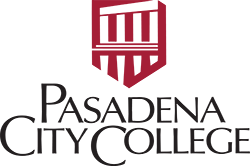Health Professions Guide
Nursing
Nature of the Work
With 4.2 million Registered Nurses (RN’s) in the US today, nursing is the largest healthcare profession. The federal government projects that more than 203,000 new registered nurse positions will be created each year from 2021-2031. Nurses provide preventative and restorative health care to patients in a wide variety of settings. Associate Degree Nurses (A.D.N.’s) complete two-years of nursing course work at a community college. The Bachelors of Science in Nursing (BSN) is the preferred path of entry into registered nursing. BSN programs usually take 5 years to complete. While each of these programs lead to licensure as a RN, a BSN affords the opportunity to pursue leadership, management, and more independent nursing roles. BSN graduates can pursue advanced degrees or training in nursing and enjoy greater career advancement opportunities. Employers are expressing a strong preference for new nurses with a bachelor’s degree.
Earnings and Occupational Outlook
The median annual salary for Registered Nurses was $77,600 in 2021, salaries vary greatly with geographic loca- tion and health care setting. The lowest 10 percent of registered nurses earned less than $59,450 and the highest 10 percent earned over $120,250 (Occupational Outlook Handbook).
“Employment of registered nurses is expected to grow 6% from 2021 to 2031, about as fast as the average for all occupations.” According to the American Association of Colleges of Nursing, the BSN nurse is prepared for a broader role - the BSN nurse is the only basic nursing graduate prepared to practice in all health care settings; critical care, ambulatory care, public health and mental health, and thus has the greatest employment flexibility of any entry-level RN.
There are many areas open to nursing graduates, including the traditional hospital nurse who may work in pediatrics, maternity, the operating room, surgical units, critical care, or trauma. Increasingly, nurses also work as nursing educators, quality assurance nurses, nurse managers, and in home health.
At the Master’s degree level there are increasing opportunities for study that include: nursing administration, nurse midwifery, clinical specialist, nurse anesthetist, case management, and nurse practitioner (family, adult, pediatric). Nurses holding Doctoral degrees often take positions in research or academic settings.
In 2021, the median annual wages for registered nurses in the top industries in which they worked were as follows:
| Industry | Annual Wages |
|---|---|
| Government | $85,970 |
| Hospitals (state, local, and private) | $78,070 |
| Ambulatory healthcare services | $76,700 |
| Nursing and residential care facilities | $72,420 |
| Educational services (state, local, and private) | $61,780 |
Pathways to Becoming a Baccalaureate Level Registered Nurse
- Enter Traditional Bachelor of Science Nursing Program at a 4-year college or university
(4-5 years)
- Earn an Associate’s Degree in Nursing to become a registered nurse (2 years). Join
a Bridge Program for an additional 2 summer intersessions while in the A.D.N. program,
plus one year at the university upon completing a 2 year nursing program. Enter a
RN to BSN program at a four-year university (1-2 years) after completing the 2 year
nursing program.
- Earn a Bachelor's degree in a non-nursing field (4 years). Enter an accelerated or
traditional BSN program (2-3 years)
- Earn a Bachelor's degree in a non-nursing field (4 years). Enter an Entry level MSN
program, which awards the BSN and/or RN license along the way (3 years)
Nursing Program Prerequisite Courses:
| Class | Subject |
|---|---|
| Anatomy 025 | Human Anatomy |
| Physiology 001 | Human Physiology |
| Microbiology 002 | Microbiology |
| Chem 002A | Chemistry (general, inorganic, organic) |
| English 001A | Reading & Composition |
| Critical Thinking course | Ex: English 001B, 001C, etc... |
| Stats 018 or 050 | Statistics |
| COMM C1000 (formerly Speech 001) or Speech 010 | Public Speaking or Interperson |
| Psychology 001 | Introduction to Psychology |
| Sociology 001 | Introduction to Sociology |
| Nutrition 011 | Human Nutrition |
Local Universities with Nursing Departments:
- California State University Los Angeles (CSULA) | (323) 343-5500
- California State University Long Beach (CSULB) | (562) 985-4463
- California State University Fullerton (CSUF) | (657) 278-3336
- California State University San Bernardino (CSUSB) | (909) 537-5380
- California State University Channel Islands (CSUCI) | (805) 437-1657
- University of California Irvine (UCI) | (949) 824-1514
- University of California Los Angeles (UCLA) | (310) 825-3109
- Mount Saint Mary’s University (MSM) | (800) 999-9893
- Loma Linda University (LLU) | (909) 558-4923
- Azusa Pacific University (APU) | (626) 815-5386 ext.2293
- California State University Dominguez Hills (CSUDH) | (310) 243-3596
- California State University Northridge (CSUN) | (818) 677-7533
- West Coast University | (866) 508-2684
Local Schools that offer Accelerated Bachelor of Science in Nursing (ABSN) for Students
with a Bachelor’s Degree in a Major Other Than Nursing:
- Azusa Pacific University
- California Baptist University
- Charles Drew University
- Mervyn Dymally School of Nursing
- Samuel Merritt College
- San Francisco State University
- UC Davis
- UCLA
- UC Irvine
- UC San Francisco
- University of San Diego|
- University of San Francisco
- University of the Pacific Western
- University of Health Sciences
Helpful Websites for Nursing Students:
- Pasadena City College Nursing Programs
- Make an Counseling Appointment with a PCC Health Science Counselor
(Must have a PCC ID number to make an appointment) - American Association of Colleges of Nursing
- National Student Nurses Association
- Nursing Schools
- Nursing School Admissions
- California Board of Registered Nursing
- Assist
- Associate Nursing Programs (ADN) in CA
- Pre-Licensure BSN Programs in CA
- Entry Level Master’s Degree Programs in CA
